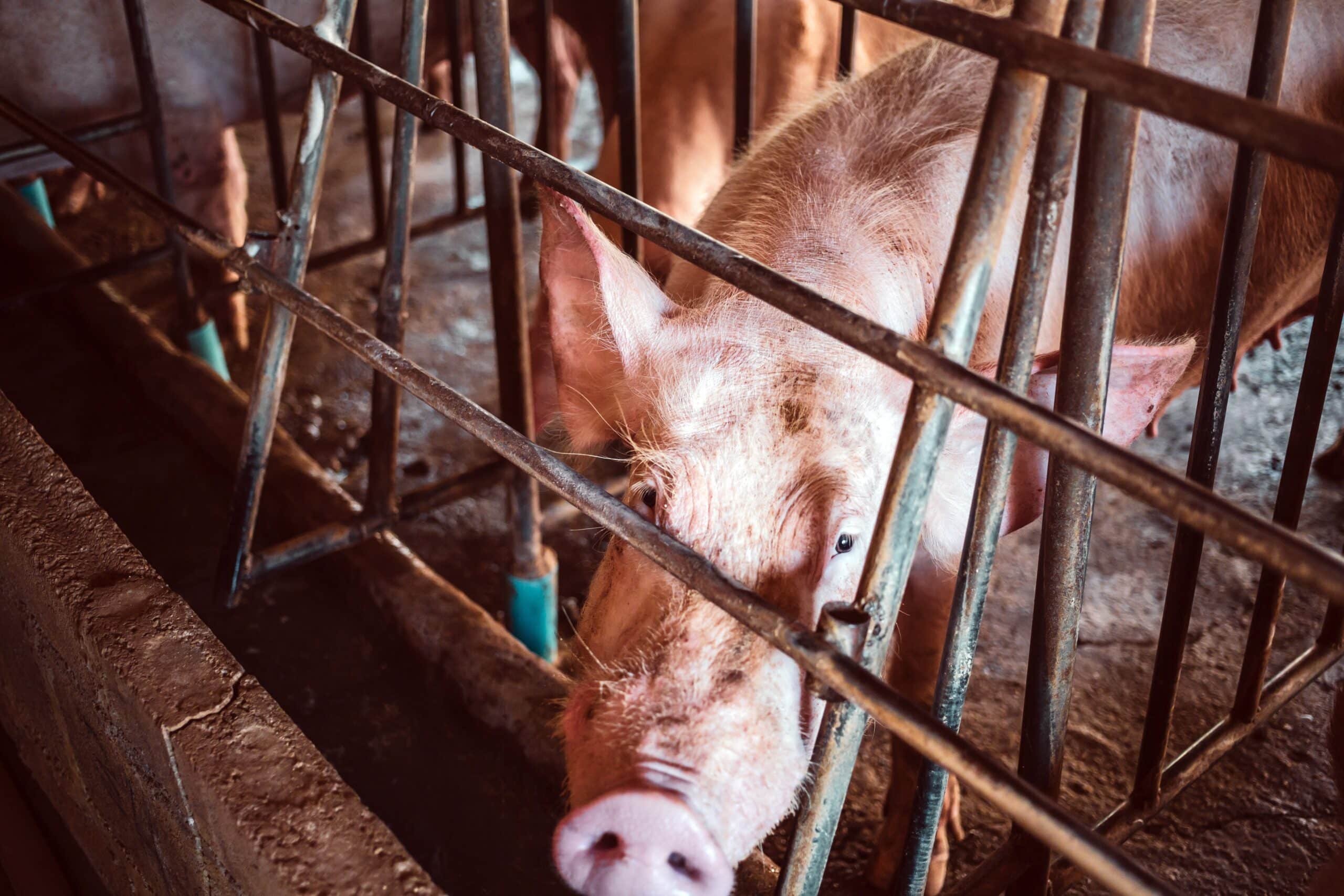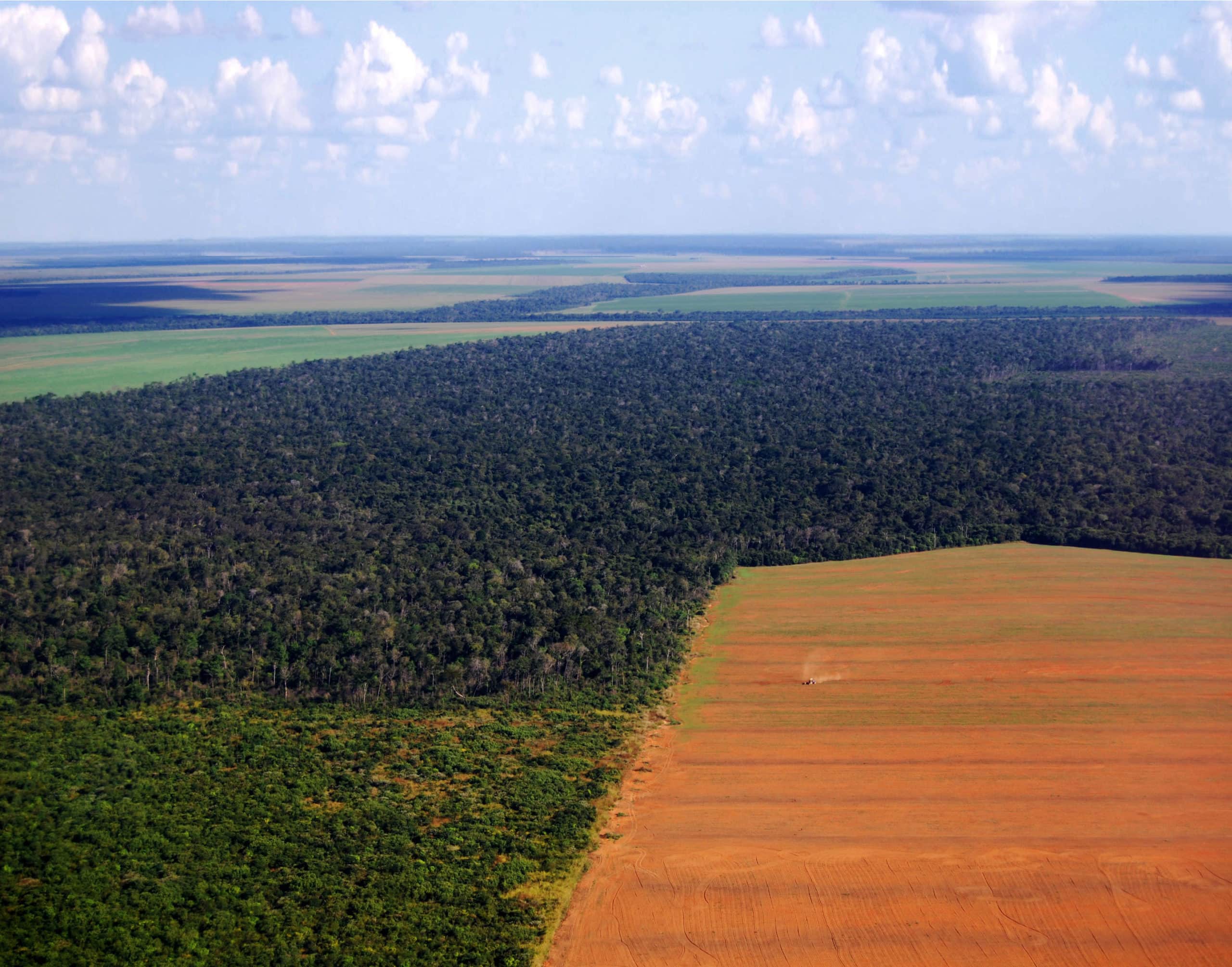Animal Agriculture
The meat, eggs and dairy at the center of many plates are also at the center of some of our world’s greatest threats to the environment, public health, workers’ rights and animal welfare.
Animal products are the most resource-intensive foods in our diet — they require massive water and energy inputs and generate significant greenhouse gas emissions, soil, air and water pollution.
In order to avert the worst impacts of climate change and protect water supplies for future generations, we must produce and eat “less and better.” This means consuming fewer animal products, supporting the farmers and ranchers who are raising animals sustainably and making sure that everyone has access to the healthiest options.
Most animals are raised in factory farms where they are fed a diet of genetically engineered corn and soy, grown with toxic pesticides and synthetic fertilizers which pollute our rivers and groundwater. Raising billions of animals in confined areas also generates massive amounts of toxic manure that pollute our air and water — especially in nearby communities.
Overuse of antibiotics in animal agriculture contributes to the rise of antibiotic resistant “superbugs,” one of our most pressing public health problems. Jobs on factory farms and slaughterhouses are associated with some of the highest rates of worker injury and illness.
To solve these problems, we must dramatically reduce meat consumption, reform current animal agriculture practices and shift to more sustainable livestock production. More sustainably-raised options, like pastured organic meat and dairy, are better for people and the planet.
Take Action. Eat Better.
- Check out our Guide to Avoiding Factory-Farmed Meat and Dairy.
- Try Meatless Monday and look for great plant-forward recipes at vegweb.com, meatlessmondays.org and vegetariantimes.com/recipe.
- Ask your supermarkets and restaurants to carry more plant-based options and to source more humane, pasture-raised and/or organic meat and dairy products. Leave comment cards, speak to the manager and post on their Facebook pages.
- Buy local and direct by shopping at your local farmers’ market or visiting LocalHarvest.org or EatWild.org
If the World Bank intends for its operations to match its new mission, the Bank must end support for industrial livestock production.
Today, USDA announced a new effort to strengthen substantiation of animal-raising claims on meat and dairy labels.
Today, 155 environmental justice, food and farm, and climate organizations voiced opposition to changes the U.S. Department of Agriculture made to the Rural Energy for America Program that will exacerbate environmental injustice in many rural communities.

As world leaders meet tomorrow in Paris to discuss the role of public finance in addressing “climate change and the global crisis”, delegates should press multilateral development banks (MDBs) to invest in line with the Paris Agreement

Our goal in engaging IFC is to encourage the bank to shift its agricultural lending toward diversified and climate-resilient food systems.

The Inflation Reduction Act (IRA) is many things at once. The good and the bad all need to be considered together.
-
Learn MoreMeat of the Matter
-
Learn MoreShrinking Carbon and Water Footprints of School Food
-
Learn MoreChain Reaction III Report
-
Learn MoreClimate Misalignment
-
DownloadCase Study on PRONACA Investments
-
DownloadEnvironmental & Social Impacts of Investments in PRONACA
